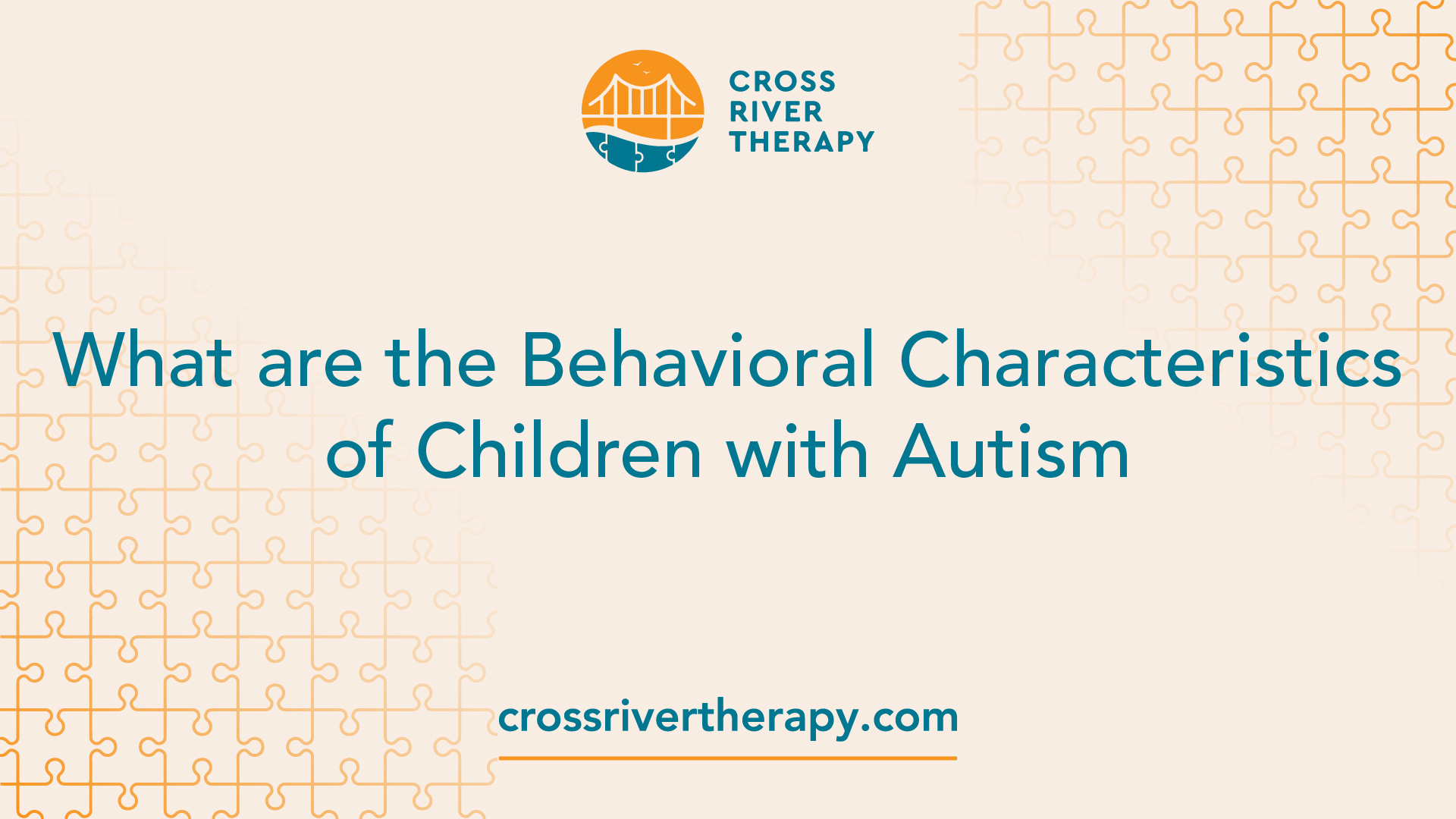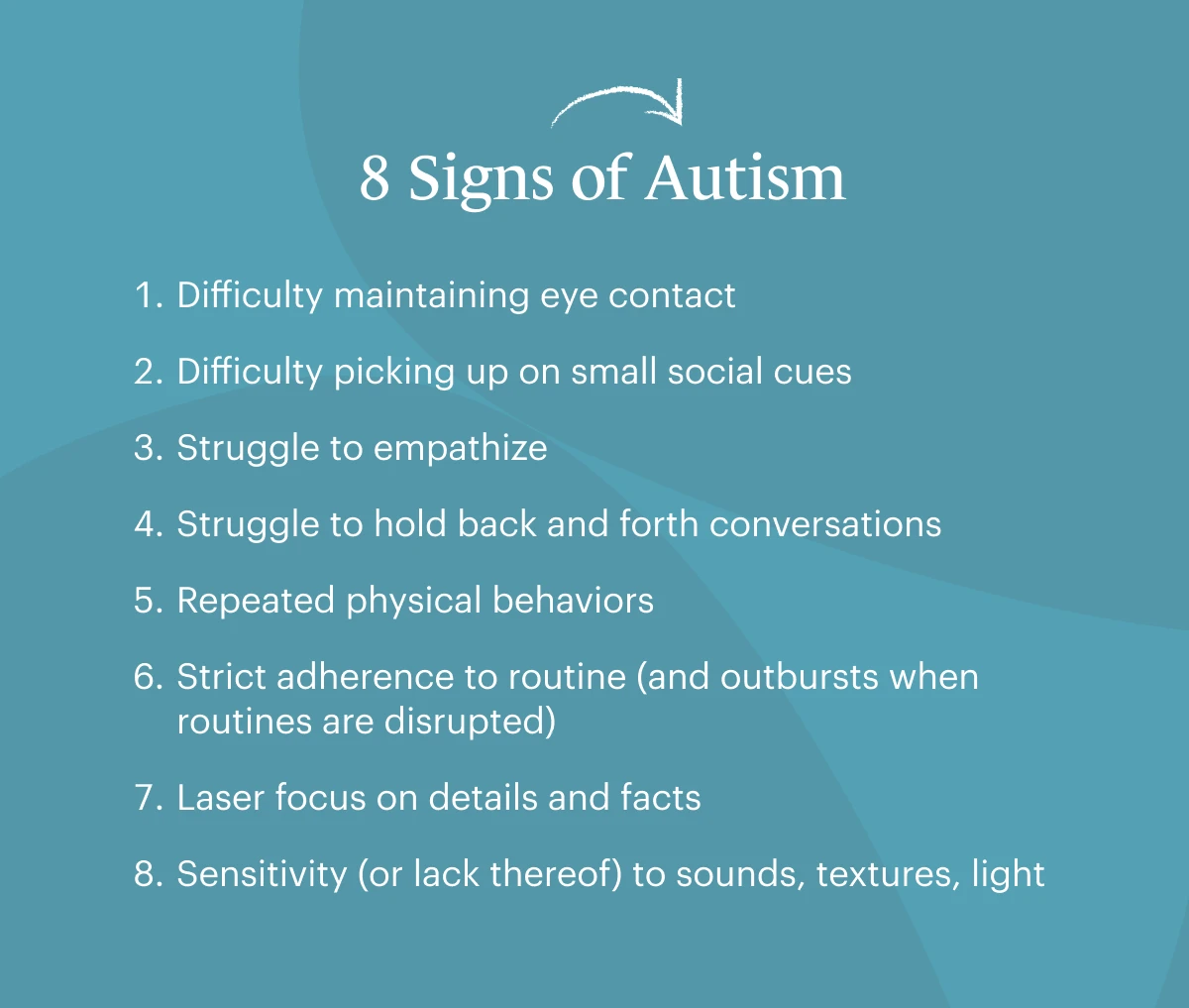Should you seek help from an Aba Therapist Near Me
Should you seek help from an Aba Therapist Near Me
Blog Article
Secret Indications and Symptoms to Identify in People With Behavioral Autism
When you run into somebody with behavior autism, recognizing essential indications and symptoms is crucial. Additionally, sensory level of sensitivities can lead to frustrating experiences.
Challenges in Social Communications
When you engage with a person on the autism range, you may notice they have a hard time with social hints and communication. These challenges can make social interactions feel frustrating for them.
Additionally, you might find that they prefer routines and familiar setups, which can restrict their readiness to take part in brand-new social circumstances. They may talk about their passions in wonderful information without seeing if you're interested when they do engage. This can bring about discriminatory discussions that leave you really feeling disconnected. Recognizing these challenges can help you come close to interactions with empathy and persistence, fostering a more comfy environment for both of you.
Problem With Verbal and Non-Verbal Communication

Non-verbal communication can be also much more challenging. You may see an absence of eye contact or limited usage of motions, which can make communications really feel unpleasant. Faces might not constantly line up with the discussion, leading to complication about their feelings. Recognizing these indicators is important, as it helps you much better support and engage with individuals on the autism spectrum. By comprehending their interaction difficulties, you can promote more meaningful connections and offer an extra encouraging setting.
Repetitive Actions and Routines
Communication obstacles usually accompany various other indicators of autism, such as repetitive behaviors and a solid choice for regimens. You may notice that people with autism typically involve in specific, repetitive actions, like hand-flapping, rocking, or repeating phrases. These actions can supply comfort and a sense of control in a commonly overwhelming globe.
Routines are just as essential; numerous people prosper when they follow an organized timetable. You may discover that modifications to these regimens can cause substantial distress. For example, if they have a day-to-day routine of eating morning meal at a details time or complying with a certain path to institution, any disruption can trigger anxiety.
Recognizing these patterns aids you comprehend their behavior and offer assistance. By fitting their demand for routine and permitting recurring actions, you can produce a much more comfy environment that relieves their challenges.
Sensory Level Of Sensitivities

Usual Sensory Triggers
Sensory sensitivities can substantially affect day-to-day life for individuals with autism, as certain stimulations commonly activate frustrating responses. Usual sensory triggers consist of loud sounds, brilliant lights, and strong scents. You might discover that unexpected audios, like alarm systems or alarms, trigger stress and anxiety or distress. In a similar way, fluorescent lights in stores can feel awkward and harsh. Textures can additionally play a substantial role; rough materials or particular food structures might be unbearable for you. Additionally, crowded areas can overwhelm your detects, making it difficult to kick back or concentrate. Understanding these triggers can help you handle your setting better. By being conscious of what affects you, you can take steps to lessen pain and improve your everyday experiences.
Behavioral Reactions Clarified
Recognizing your behavior actions to sensory level of sensitivities is important, as they frequently disclose how you connect with the globe. You may observe that particular sounds, lights, or appearances bewilder you, causing anxiousness or pain. When confronted with these stimuli, you could withdraw, cover your ears, or perhaps react strongly. These feedbacks aren't just peculiarities; they're your method of managing overstimulation. You might additionally discover on your own looking for particular sensory experiences, like deep stress or silent environments, to help ground yourself. Identifying these patterns index aids you comprehend your requirements much better and can guide how you interact them to others. By acknowledging your sensory level of sensitivities, you can work towards producing a setting that really feels more convenient and comfy for you.
Coping Methods Review
Identifying your sensory level of sensitivities is just the initial step; currently it's time to discover coping methods that can help you take care of those experiences effectively. Beginning by developing a sensory toolkit tailored to your needs. This might consist of noise-canceling earphones, fidget playthings, or soothing scents. Developing an organized routine can also offer predictability, decreasing stress and anxiety around sensory overload. When you really feel overloaded, take breaks in a quiet room to collect yourself. Practicing mindfulness techniques such as deep breathing can help ground you in the moment. Furthermore, communicate your needs with those around you; having helpful family and friends can make a huge difference. Bear in mind, locating what works best for you may take time, site here so be patient and open to attempting brand-new strategies.
Restricted Rate Of Interests and Emphasis
While many individuals establish a vast array of passions, those with autism frequently demonstrate restricted rate of interests and an intense concentrate on specific topics. You may observe that somebody with autism can invest hours delving into their favorite topic, whether it's a particular sort of train, a particular motion picture, or a scientific principle. This extreme emphasis isn't just a pastime; it can end up being a central component of their identity and social interactions.
You may find that conversations rotate around these interests, and they may battle to engage in broader subjects. By understanding and recognizing these limited passions, you can cultivate a helpful setting where they feel valued and understood, allowing for even more meaningful connections and interactions.
Emotional Guideline Troubles
People with autism typically deal with challenges in psychological regulation, which can be influenced by their extreme emphasis on details interests. You may observe that when an individual is deeply involved in a recommended activity, they can experience solid emotions, whether exhilaration or frustration. This strength often makes it hard for them to change gears or handle their feelings when points do not go as planned.

Irregularity in Developmental Landmarks
When it comes to developing milestones, you'll observe that people with autism commonly show a vast array of irregularity. You may see a child succeed in language abilities yet battle with social communications.
It's important to acknowledge that each individual's trip is one-of-a-kind. Some may establish intricate skills early, just to face difficulties later on. Others may take longer to attain standard landmarks but then prosper in particular locations. Observing these patterns can help you recognize their toughness and requires better.
Frequently Asked Concerns
How Is Autism Detected in Children and Grownups?
To diagnose autism in grownups and kids, specialists evaluate behavior, communication abilities, and social interactions. They typically utilize standard examinations, meetings, and observations to determine if a private meets the requirements for autism spectrum disorder.
Exist Different Kinds Of Autism Spectrum Disorders?
Yes, there are different sorts of autism spectrum conditions, consisting of Asperger's syndrome and pervasive developing disorder-not or else defined. Each kind differs in severity and features, so recognizing these distinctions can aid you far better support people with autism.
What Treatments Are Reliable for People With Autism?
When thinking about effective treatments for people with autism, you'll discover alternatives like Applied Actions Evaluation, speech treatment, and job-related therapy. Each method can aid boost communication, social abilities, and daily operating customized to specific needs.
Can People With Autism Lead Independent Lives?
Yes, people with autism can lead independent lives. With the best support, skills training, and sources, you can help them develop self-sufficiency, take care of everyday jobs, and grow in different settings, fostering their freedom.
How Can Households Support Enjoyed Ones With Autism?
You can sustain your liked ones with autism by producing a structured setting, motivating their rate of interests, exercising persistence, fostering interaction, and advertising social skills. Commemorate their achievements, no issue how tiny, and develop a supportive neighborhood.
Although numerous individuals on the autism spectrum can recognize and make use of language, they typically encounter considerable obstacles with both non-verbal and spoken interaction. Recognizing these indicators is important, as it aids you far better support and engage with individuals on the autism spectrum. You may notice that people with autism frequently engage in particular, repetitive activities, like hand-flapping, shaking, or repeating expressions.Sensory level of sensitivities can significantly impact day-to-day life for people with autism, as particular stimulations typically cause frustrating reactions.When it comes to developing turning points, you'll observe that people with autism typically original site reveal a wide range of irregularity.
Report this page